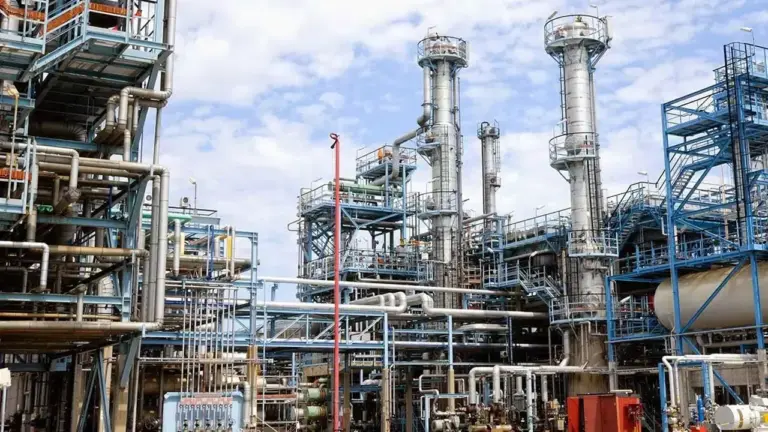After two decades of inactivity, Nigeria’s Port Harcourt refinery has successfully completed 180 days of uninterrupted operation, signaling a major breakthrough in the country’s efforts to restore its domestic refining capacity.
This milestone is expected to reduce Nigeria’s reliance on imported petroleum products, stabilize fuel supply, and enhance the nation’s energy security.
A Renewed Push for Self-Sufficiency
Nigeria is making significant strides toward revitalizing its refining sector, aiming to become self-sufficient in petroleum product supply. The Federal Government has invested heavily in the rehabilitation of key refineries, including those in Port Harcourt, Warri, and Kaduna, to boost local production.
Key Highlights:
-
The Port Harcourt refinery has now operated continuously for six months.
-
Government efforts are focused on revamping moribund refineries to reduce dependence on fuel imports.
-
The Nigerian National Petroleum Company Limited (NNPC) has played a key role in ensuring steady refinery operations.
The Petroleum Products Retail Outlets Owners Association of Nigeria (PETROAN) has commended the government and NNPC for sustaining production at the refinery, noting that this achievement is critical in addressing fuel shortages and stabilizing local supply chains.
Government’s Refinery Overhaul Strategy
The drive to restore Nigeria’s refining capacity has been a long-term national priority, dating back to the administration of former President Muhammadu Buhari.
Current Refinery Overhaul Efforts Include:
✔ Port Harcourt Refinery (Operational since mid-2024)
✔ Warri Refinery (Resumed operations on December 30, 2024)
✔ Kaduna Refinery (Set for rehabilitation)
These refineries, with a combined capacity of 445,000 barrels per day (bpd), include:
-
110,000 bpd Kaduna refinery
-
60,000 bpd Old Port Harcourt refinery
-
150,000 bpd New Port Harcourt refinery
-
Warri refinery
The resumption of operations at these state-owned refineries is expected to complement private sector investments, particularly the Dangote Refinery, in boosting Nigeria’s domestic crude oil processing capacity.
Challenges and Future Outlook
While the progress is promising, sustaining full-scale operations at Nigeria’s refineries remains a formidable challenge.
Key Hurdles Include:
Pipeline vandalism and crude oil theft
Underinvestment in upstream oil production
Meeting crude oil supply targets
Despite these challenges, the refinery rehabilitation program remains a top national priority, especially amid rising fuel costs and growing pressure to achieve self-sufficiency in petroleum product supply.
The success of the Port Harcourt refinery’s continuous operation is a strong indicator that Nigeria is on the right path toward revamping its refining industry and securing energy independence.

